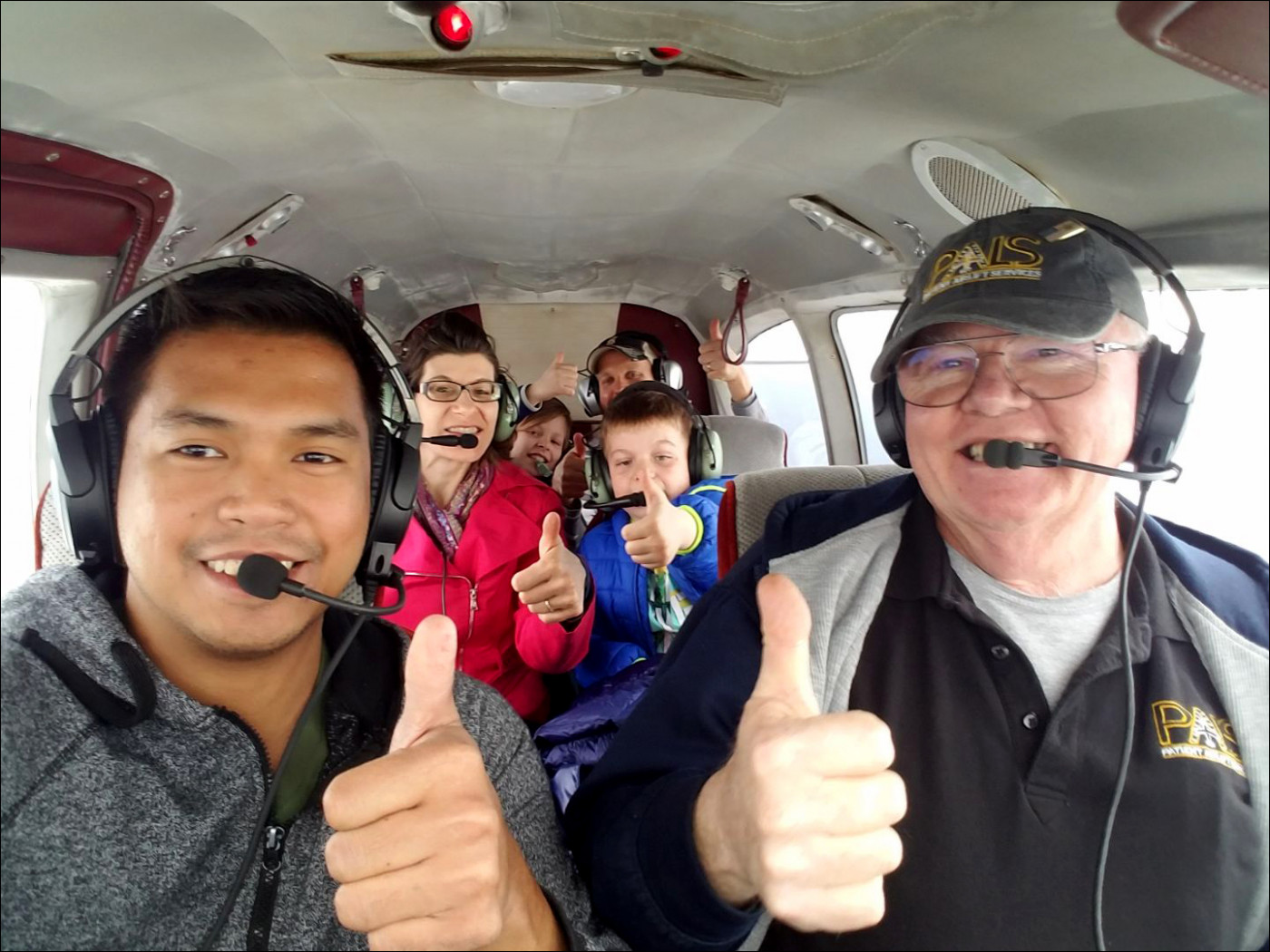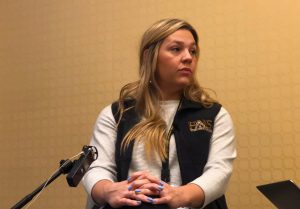PALS Uplifts the Spirits of Rare-Disease Patients by Offering Free Flights

PALS pilots Dan and Ricky transport a 6-year-old boy and his family to the Children's Hospital of Philadelphia. (Photo courtesy of PALS)
Cumbersome security procedures, rising airfares, and shrinking legroom have made commercial air travel difficult enough these days — even for healthy passengers. Imagine how much harder it is for patients with rare diseases who must get to doctors’ appointments or clinical trials that are hundreds of miles away from home.
Easing these patients’ financial and logistical burdens is Patient Airlift Services (PALS), a charity based at Republic Airport in Farmingdale, New York.
PALS relies on a network of about 660 professional pilots across the United States who donate their time and resources to help patients in need.
“Our mission is to eliminate logistics as a barrier,” said Jamie Newberry, relationship manager at PALS, a 501(c)(3) nonprofit established in 2010. She spoke to Bionews Services— which publishes this website — on the sidelines of last month’s 2019 World Orphan Drug Congress USA in Oxon Hill, Maryland.
“We believe that when someone is experiencing an illness or humanitarian crisis, receiving the best medical care, compassionate support or disaster relief is a basic human right — no matter how far that care or support is from home,” she said.
The beauty of PALS is that it’s not an illness-specific organization, she added.
“Personally, within the rare-disease community, I see a big need,” she said. “There are 7,000 rare diseases, and while [these communities are] very powerful collectively, in numbers, individually they don’t have as loud a voice as they should. Unfortunately, people don’t know about PALS. They don’t know there are volunteer pilots out there willing to help them.”
Pilots donate time, resources
The organization is sponsoring a fundraiser — its “Above & Beyond Long Island Gala 2019” — to take place June 5 at The Mansion at Oyster Bay in Woodbury, New York.
The event’s “Flight of Hope” awardees are John Bruno and Richard Burton. Also getting recognition as a “corporate social responsibility innovator” will be Scott Ashton, CEO of Corporate Service Supply & Manufacturing.
Tickets to the event are $150, with sponsorships ranging from $1,000 for “coach class” up to $25,000 for “first class” status.
PALS received about $5.9 million in contributions (including in-kind donations worth $4.2 million) in 2017, according to its annual report. A video about the organization can be viewed here.
“The faces and stories of our passengers are always different,” said PALS president Donna Collins. “Whether you’re a combat-wounded veteran attending a morale-boosting event, a loved one evacuated from a natural disaster site, or a parent needing to be bedside while [your] child receives specialized care, one thing is for certain: PALS will help you get where you need to be.”
PALS volunteer pilots own and fly a range of general aviation aircraft; most airplanes are unpressurized and seat four to six people, including the pilot. Some medical flights are in “low wing” aircraft, which require passengers to step onto a portion of the wing as they board.
Typical flight times range from one to three hours, and cover 200 to 600 miles. All passengers using PALS must sign a waiver and a release-of-liability form. The flights are free for patients, with pilots bearing the entire cost of each medical flight, including fuel, oil, landing fees, ramp fees, and other expenses.
“These pilots are donating their time and resources out of the goodness of their hearts,” Newberry said. “They’re doing what they love — flying — and it’s their way of giving back.”
20,000 flights and counting
The organization has served more than 2,900 families and organized around 3,500 ground trips and 20,000 flights since its inception in 2010. That’s equivalent to 4.6 million passenger miles.
“Typically, with general aviation aircraft, you’re talking about 300 nautical miles — the distance from New York City to Boston,” Newberry said. “We also work with centers of excellence like CHOP [Children’s Hospital of Philadelphia] and Memorial Sloan Kettering Cancer Center.”
One of the hardest aspects of commercial air travel is the strict security protocol at U.S. airports, Newberry said. Federal regulations requiring removal of shoes and passage through scanners are especially tough on patients and their family members.
“It’s embarrassing for the patient. Some have expanders and have to take their shirts off. Others are constantly setting off alarms, so it’s really comforting to fly in private aircraft,” Newberry said.
The PALS team of volunteer pilots, as well as the organization’s corporate and commercial partners, enable it to offer families comprehensive, door-to-door assistance, including free air and ground transportation. Because a four-seater plane cannot fly all the way from, for example, Maine to Texas, PALS has partnerships with regional airlines such as JetBlue, Cape Air, and Southwest.
Yet there are limitations.
“We’re not a medical ambulance, so help is not always around the corner,” Newberry cautioned. “We don’t have medical staff on board, so if a pilot is flying midair and there’s a crisis, in the worst-case scenario, the pilot wouldn’t be able to intervene.”







